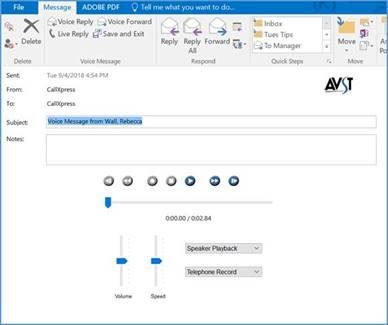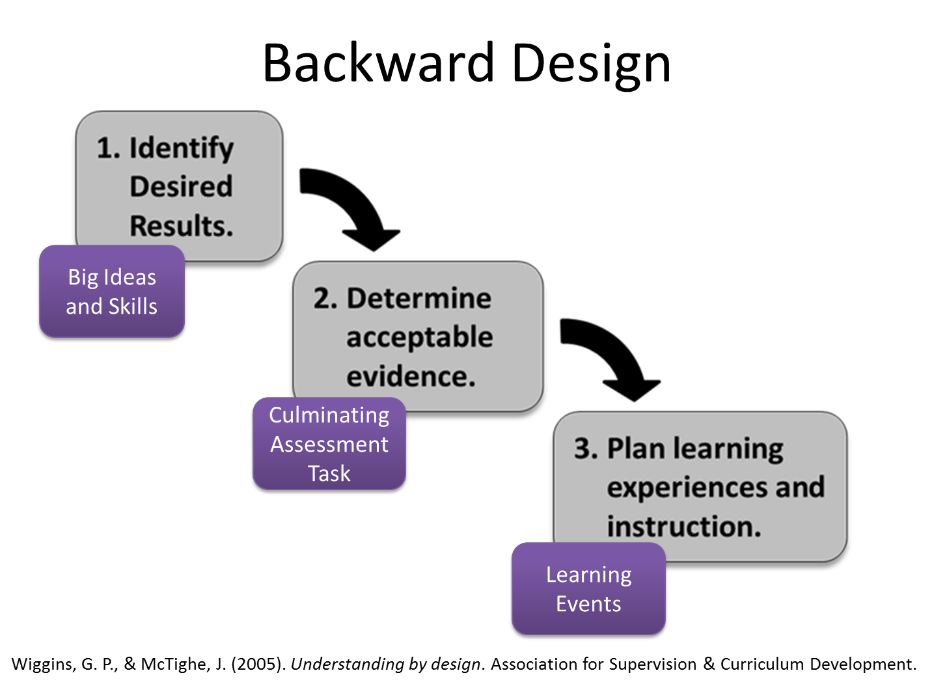Meriam Library(opens in new window)
Faculty Affairs and Success (FAAF)(opens in new window)
Accessible Technology Services (TEIN)(opens in new window)
It is now possible to receive voicemail in your e-mail inbox. Chico State just launched a new technology called “Unified Messaging” (UM) that automatically e-mails you an audio file of a voicemail left on your office line. The e-mail will include either an attached audio file or a play button right in the text (see screenshot below). Once you listen to the voicemail in your e-mail inbox, the red light on your phone will stop blinking since the voicemail is no longer considered new. If you delete the e-mail, it automatically deletes the voicemail from the message center. This feature is particularly useful if you want your voicemail and e-mail communications in the same place, if you share an office phone with colleagues, or if you just rarely notice that blinking voicemail light on your landline. You can still retrieve voicemails the usual way by dialing 898-4400.
If you’re interested in setting up Unified Messaging, open the UM page(opens in new window) and then click on “Request Service.”

If you’d like to comment on this or any other Tuesday Tip, visit the FDEV Blog(opens in new window).
All past Tuesday Tips are curated on the FDEV website.
The Cheshire Cat told Alice in Wonderland that if she didn’t know where she wanted to go, then it didn’t matter which path to take. Getting somewhere specific requires knowing the destination. This same concept (starting with the end goal in mind) applies to creating or modifying a course. In the book, Understanding by Design(opens in new window), the authors suggest the following three steps for creating a course using Backwards Design (i.e. designing from back to front – see model below). Note that determining what to actually teach is the final step.
If you would like help designing or updating courses (face-to-face, online, or hybrid), the Technology & Learning Program has instructional design consultants available to assist you. Request an appointment(opens in new window)

If you’d like to comment on this or any other Tuesday Tip, visit the FDEV Blog(opens in new window).
All past Tuesday Tips are curated on the FDEV website.
This week’s tip brought to you by Nathan Heggins Bryant, assistant professor in English and co-coordinator of this year’s Book in Common (BiC).
To create an inclusive and welcoming space for students, faculty must be cautious of word choice in the classroom. In her recent book, Dismantling the Racism Machine, Karen Gaffney discusses issues pertaining to naming and diction. She suggests, “Pay more attention to how you respond to other people’s names.” She references a recent study showing that employers and teachers alike respond more positively to names that sound white than those that sound black.
Making an effort to learn and pronounce students’ names is an important step in creating an environment where students feel welcomed and engaged. But so, too, are our decisions to use damaging terms like “illegal alien” (as opposed to “undocumented person”). The implication of name choice is one of the tenets of this year’s BiC (All They Will Call You). If you are interested in learning more, consider attending one of these upcoming Book in Common events.
If you are teaching the BiC in a course, in part or in whole, there are resources available for you to use (reading lists, discussion questions, etc.) or you can contact co-coordinators Nathan Heggins Bryant or Hannah Burdette to assist with curricular planning.
If you’d like to comment on this or any other Tuesday Tip, visit the FDEV Blog(opens in new window).
All past Tuesday Tips are curated on the FDEV website.
New feature of Tuesday Tips: FDEV now has a blog at www.FDEVTuesdayTips.com(opens in new window) so you can engage in campuswide conversations by posting comments about any Tuesday Tip (past or present). We’ll include a link to the blog in every tip so you can share your ideas, thoughts, concerns, etc. about the topics.
----------------------------------------------------------------------------------
In a recent interview with the Chronicle of Higher Education (attached), astrophysicist Neil deGrasse Tyson argued that universities fail to adequately communicate with the public about their discoveries, and that reduces their educational impact. He noted “there’s a whole culture [in academia] that does not embrace…pop culture. If communicating with the public were valued in the tenure process, [faculty] would be better at it.”
If you’d like to comment on this or any other Tuesday Tip, visit the FDEV Blog(opens in new window).
All past Tuesday Tips are curated on the FDEV website.